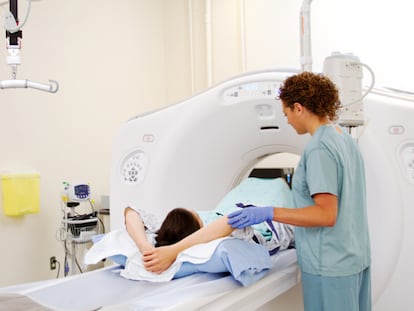Cable que describe a Zapatero y sus ministros al formarse el Gobierno de la segunda legislatura
"Solbes hab¨ªa pensado abandonar en el Gobierno al concluir la primera legislatura. Zapatero le convenci¨® para quedarse, y su presencia se ha interpretado como un mensaje al sector empresarial, que le ve como un parapeto"
| ID: | 154524 |
| Date: | 2008-05-19 16:13:00 |
| Origin: | 08MADRID552 |
| Source: | Embassy Madrid |
| Classification: | UNCLASSIFIED//FOR OFFICIAL USE ONLY |
| Dunno: | 08MADRID1991 08MADRID449 |
| Destination: | VZCZCXRO7829 PP RUEHAG RUEHDF RUEHIK RUEHLZ RUEHROV DE RUEHMD #0552/01 1401613 ZNR UUUUU ZZH P 191613Z MAY 08 FM AMEMBASSY MADRID TO RUEHC/SECSTATE WASHDC PRIORITY 4785 INFO RUCNMEM/EU MEMBER STATES COLLECTIVE RUEHLA/AMCONSUL BARCELONA 3425 |
UNCLAS SECTION 01 OF 11 MADRID 000552 SENSITIVE SIPDIS DEPARTMENT FOR EUR/WE, ALSO FOR INR/B E.O. 12958: N/A TAGS: PGOV, PINR, SP SUBJECT: SPANISH CABINET MEMBER BIOGRAPHIES - ZAPATERO'S NEW TEAM REF: MADRID 449 MADRID 00000552 001.2 OF 011 1. (U) SUMMARY. President Zapatero's center-left Spanish Socialist Workers' Party (PSOE) was the victor in the March 9 general election. This cable gives brief biographies for the cabinet members in Zapatero's second administration. Overall, the cabinet reflects Zapatero's campaign promises to focus on innovation, equality and the environment. This is the first Spanish cabinet with more women than men. Several key players from the first Zapatero administration will keep their jobs, including Vice Presidents de la Vega and Solbes, Foreign Minister Moratinos, and Interior Minister Rubalcaba. An important change is the shift of Carme Chacon from Minister of Housing to Minister of Defense. Two new Ministries have been added: a Ministry of Equality and a Ministry of Science and Innovation. Other Ministries were restructured. For example, The Ministries of Environment and Agriculture merged. The Ministry of Education, Social Affairs and Sports restructured to include social affairs, but gave up its science portfolio. The Labor Ministry assumed responsibility for immigration affairs. Biographies will be posted to the Embassy Madrid Intellipedia page for future reference and periodic updates. END SUMMARY. 2. (U) Zapatero's new cabinet is: First Vice President for the Presidency Maria Teresa Fernandez de la Vega; Second Vice President for Economy and Finance Pedro Solbes; Minister of Foreign Affairs Miguel Angel Moratinos; Minister of Justice Mariano Fernandez Bermejo; Minister of Defense Carme Chacon; Minister of Interior Alfredo Perez Rubalcaba; Minster of Public Administration Elena Salgado; Minister of Public Works (Fomento) Magdalena Alvarez; Minister of Environment and Marine and Rural Environs (Agriculture) Elena Espinosa; Minister of Equality Bibiana Aido; Minister of Education, Social Affairs and Sport Mercedes Cabrera; Minister of Labor and Immigration Celestino Corbacho; Minister of Industry, Tourism and Commerce Miguel Sebastian; Minister of Science and Innovation Cristina Garmendia; Minister of Housing Beatriz Corredor; and Minister of Health Bernat Soria; Minister of Culture Cesar Antonio Molina. --------------------------------------------- ---- Maria Teresa Fernandez de la Vega First Vice President, Minister of the Presidency, and Spokesperson of the Government --------------------------------------------- ----- 3. (U) Maria Teresa Fernandez de la Vega continues as First Vice President for a second term. In 2004, she became the first woman to occupy a Vice Presidency in Spain. As Vice President and Minister of the Presidency, de la Vega coordinates the "political" ministries with a primary focus on Justice, Defense, Equality, Education and Foreign Affairs. 4. (U) During the 2000-2004 legislature, de la Vega served as PSOE Secretary General in Congress and led the opposition party's attacks against the PP's Aznar administration. In this position, she also coordinated the PSOE members in Congress to achieve a unified legislative program. She has been elected as Congresswoman three times: in 1996 for Jaen, in 2000 for Segovia, and in 2004 for Madrid. 5. (U) From 1994-96 de la Vega served as Secretary of State for Justice with Justice Minister Alberto Belloch, a position she held until 1996. During that time she managed the reform of the Penal Code. De la Vega promoted the active participation of State prosecutors in criminal investigation, while maintaining the ultimate control of magistrates in the judicial process. 6. (U) De la Vega began her political career with the Catalan Socialist Party, but in 1979 moved her affiliation to a political movement called "Justicia Democratica", a group of judges, prosecutors, and lawyers that played an important role in Spain's transition to democracy after Franco's regime. When the Socialist Party (PSOE) won its first national elections in 1982, de la Vega served as Chief of Cabinet to Socialist Minister of Justice Fernando Ledesma. In 1985 she was appointed Director General of Services in the Justice Ministry and under her leadership the number of judges doubled. From 1988 to 1990 she worked in the Secretariat of Labor Magistrates and in 1990 she was appointed spokesperson of the General Council of Judicial MADRID 00000552 002.2 OF 011 Authority. 7. (U) She was born in Valencia in 1949. She studied Law and received her PhD from the University of Barcelona. She taught Labor Law at the University of Barcelona. She is a specialist in Human Rights and International Juridical Cooperation with additional training from the University of Strasbourg. --------------------------------------------- ----- Pedro Solbes Second Vice President and Minister of Economy and Finance --------------------------------------------- ----- 8. (U) As Vice President for Economic Affairs, Solbes is supposed to exercise control over all the economic decisions of the GOS, except foreign and domestic trade, tourism, and energy, which fall to the Ministry of Industry, Tourism, and Commerce. 9. (SBU) Solbes had reportedly seriously considered leaving the government at the end of Zapatero's previous term. He is 65, and his wife wanted him to retire. Zapatero convinced him to stay, and his presence on the ticket was considered to be an important appeal to the business community, some of whose members have portrayed Solbes as the only bulwark preventing Socialist ministers from overspending. Zapatero is reported to have promised Solbes increased authority. 10. (SBU) In Zapatero's first term, Solbes often was at odds with the economic office of the presidency, which tended to favor more interventionist policies. Sebastian has now been named Minister of Industry, Tourism, and Commerce, and individuals linked to Sebastian have been named to other ministries. After Sebastian's appointment was announced, Solbes told the press, "I am the Economic Vice President. I am the one who makes decisions on economic policy. I am the one who signs the economic draft laws. This is a coalition government between me and the rest." Solbes had clashed with Sebastian in 2005-06 over the German company E.ON's bid to acquire Spain's Endesa; Solbes had not objected to the bid, while Sebastian influenced GOS attempts to block the bid and later helped broker the eventually successful purchase by Italy's Acciona and Spain's Acciona. After Zapatero was re-elected, Solbes had reportedly asked Zapatero to give him the energy portfolio as well, but the portfolio remained in Sebastian's ministry. 11. (U) Solbes has traditionally emphasized the importance of fiscal responsibility and maintaining Spain's budget surplus. With the economy expected to grow much more slowly in 2008, unemployment rising, and inflation relatively high, he will face pressure to spend more, and he has emphasized for months that the budget surpluses of Zapatero's first four years have given the GOS more margin to maneuver in the difficult times expected ahead. He already has announced 10 billion euros in tax cuts and spending increases for 2008, with about 8 billion expected for 2009. He also will be expected to address the housing slowdown, which has increased unemployment and caused serious difficulties for construction and real estate firms, along with their creditors. 12. (U) A civil servant since 1968, Solbes, in 1982 as Technical Secretary General, was one of the seven people who negotiated Spanish accession to the European Community. He was Secretary General of Economy and Finance from 1982 to 1985 and Secretary of State for European Community Relations starting in 1985. He was named Minister of Agriculture, Food and Fisheries in 1991 and Minister of Economy and Finance in 1993. In September 1999, Solbes became the European Commissioner responsible for Economic and Monetary Affairs. He earned praise for his sense of duty and his courage for denouncing the institutional rupture that occurred when the Council of Ministers refused to sanction France and Germany for exceeding European Stability & Growth Pact budget deficit limits. 13. (U) Pedro Solbes was born in Pinoso (Alicante province) in 1942. He graduated in European economy from the Universite Libre de Bruxelles and earned a degree in law and a doctoral degree in Political Science from the Complutense University of Madrid. He is married to Pilar Castro Rodriguez and has three children (Teresa, Miguel and Lucia). He speaks French and English. --------------------------- Miguel Angel Moratinos Ministry of Foreign Affairs MADRID 00000552 003.2 OF 011 --------------------------- 14. (U) Moratinos begins his second term in the Cabinet as the Spanish democracy's second-longest serving Foreign Minister. In the presidential investiture debate, Zapatero said that one of his priorities will be the Sub-Saharan Africa and in next few months, Moratinos is tasked with arranging high-level summits with Morocco and Algeria. Moratinos traveled to several Latin America countries in April to forge ties in advance of the May EU-Latin America Summit. Some of the pending issues Moratinos faces from the last legislature are Spanish foreign service reform, development assistance credits reform, and construction of a new building to house his Ministry, which is currently in leased spaces. 15. (SBU) Moratinos was one of the key players behind the Madrid 1991 Peace Conference and considers himself an expert in Middle East policy. From 1991 to 1993, he was Director General of the Institute for Cooperation with the Arab World. From 1993 to 1996 he was Director General of Foreign Policy for North Africa and the Middle East. During the 1995 Spanish EU Presidency, Moratinos managed all Middle East policy issues and was a frequent interlocutor with Washington. In June 1996, he was appointed Ambassador to Israel, a position he held for only six months. In December 1996, he was appointed Special Representative of the European Union (EUSR) for the Middle East Peace Process. Moratinos managed the EU's relationship with Israel and Palestine, as well as other states in the region like Syria, Lebanon, Jordan, and Egypt. However, he created a perception that he maintained closer ties with Yassar Arafat than with Prime Minister Sharon. While Moratinos participated in the MEPP Quartet meetings, Israelis reportedly considered Moratinos excessively favorable to the Palestinian cause. Moratinos left the EUSR position in July 2003. His name was mentioned as a possible candidate for the UN High Commission for Human Rights following the death of Sergio Vieria de Mello. However, in October 2003 Moratinos returned to the Ministry of Foreign Affairs. 16. (U) Moratinos began his diplomatic career as Spain's Chief Director for the Eastern European Coordination Desk in 1974-1979. He was First Secretary at the Spanish Embassy in Yugoslavia, where he later served as Charge d'Affaires from 1980-1984. He was Political Advisor in Rabat (1984-1987) and Deputy Director General of North African Affairs in the Ministry of Foreign Affairs (1987-1991). 17. (U) Moratinos joined the Socialist Workers' Party (PSOE) in 2000 and in 2004 and 2008 won election as a Congressional delegate representing his hometown of Cordoba. 18. (U) Miguel Angel Moratinos was born in 1951. Moratinos holds a degree in law and political science and a diploma in international studies from the Spanish Diplomatic School. He is fluent in English and French. He understands Russian and Serbo-Croatian. -------------------------- Mariano Fernandez Bermejo Minister of Justice -------------------------- 19. (U) Mariano Fernandez Bermejo was appointed Minister of Justice in February 9, 2007, and is retained as a member of the new cabinet. The strong recommendation of Vice President Fernandez de la Vega ensured Fernandez Bermejo's appointment and he is expected to strengthen rapport and cooperation between the Ministry, the Prosecutor's Office and the Interior Ministry. He is reported to have a good working relationship with Interior Minister Rubalcaba and Secretary of State for Security Antonio Camacho. 20. (SBU) As a founding member of the Progressive Union of Public Prosecutors, Fernandez Bermejo is considered to be the guardian of the PSOE's judicial policy. Fernandez Bermejo will manage and attempt to inject change into a judicial system in which some "conservative" judges have not been supportive of GOS-sponsored initiatives, including homosexual marriage and autonomous community statutes. 21. (U) First-ranked in his professional certification exams, he began his career as a prosecutor in 1974 in Santa Cruz de Tenerife, then worked in territorial courts in Caceres and Segovia. From 1986 to 1989 he was Advisor to Minister of Justice Fernando Ledesma. In 1989, he was appointed Prosecutor of the Supreme Court. From 1992-2003, Fernandez MADRID 00000552 004.2 OF 011 Bermejo served as Chief Prosecutor of the Madrid High Court of Justice. In 2004, he became Prosecutor of the Supreme Court. 22. (SBU) Fernandez Bermejo is known for taking tough stands and speaking out on issues. He is the only prosecutor who has taken a Minister to Court. In another example, when he led opposition to the Rapid Justice Law, the PP-led government retaliated by passing a law limiting prosecutors to five-year terms instead of lifetime appointments (effectively moving Fernandez Bermejo along in the system). Expressing his unhappiness with the PP maneuver at the time, Fernandez Bermejo said, referring to the Spanish Civil War and Franco's regime, "we fought against the parents, and now we have to fight against their children." 23. (SBU) He is considered to be a strong personality, not given to conciliation, and with a tendency to harsh assessments. "I am a leftist, and I behave like one," he admits. Perhaps due to these traits, Fernandez Bermejo has not received the support of the Concejo Fiscal, the advisory body that reviews judicial appointments, in either of his positions at the High Court or Supreme Court. According to the media, many Ministry of Justice civil servants, the judicial secretaries, and the judges believe that Fernandez Bermejo, while focused on policy matters, has not fulfilled his promises on wages or work conditions. 24. (U) Born in 1948 in Avila, Fernandez Bermejo received a Doctorate in Law from the Complutense University in 1969, followed by an advanced degree in Community Law in 1998. A Public Prosecutor since 1974, he is an expert on Penal Law. Fernandez Bermejo does not speak English. ---------------------------------- Carme Chacon (new in this Ministry) Minister of Defense ---------------------------------- 25. (U) Carme Chacon is the first woman Minister of Defense in Spanish history. She served as Housing Minister from 2007 to 2008 and also was First Vice President of Congress from 2004-2007. Her cabinet appointment was the surprise in Zapatero's second administration amidst widely varying speculation regarding who might be awarded the plum job. Zapatero made it clear he intended to put in place a broadly representative cabinet and Chacon brings ties to the Catalan constituency as well her deep-rooted PSOE political credentials. Jose Montilla, Secretary General of the Catalan Socialist Party (PSC) has been one of Chacon's strongest supporters. Chacon was one of the PSC members of Zapatero's "new team" after he won the PSOE party congress in 2000. 26. (SBU) Chacon lacks experience in military affairs (the same could be said of most of her predecessors), but she is reportedly viewed by Zapatero as a strong manager. Chacon was quick to visit Spanish troops deployed in Afghanistan and Lebanon and she is expected to visit Kosovo in the near future. Chacon served as an OSCE international observer in Bosnia-Herzegovina in 1996 and Albania in 1997. Her other credentials include representing the Socialist delegation in Spain's bipartisan Anti-terrorism Pact. She reportedly has a strong rapport with Interior Minister Rubalcaba. 27. (SBU) There was some buzz in conservative circles about Zapatero choosing a MOD who was a "pacifist." Asked about the label in a recent newspaper interview, Chacon said, in essence, that if being a pacifist meant valuing peace, then she was a pacifist. She went on to express her admiration for the Spanish troops she had just visited in Afghanistan. 28. (SBU) Chacon's priorities will reportedly be the Spanish military missions abroad, modernization, and personnel restructuring. The personnel restructuring will be a particular challenge as some senior officials disagree with plans to reduce the number of generals and there is controversy over proposals to adjust Spanish troop levels in Ceuta and Melilla. 29. (U) Carme Chacon was born in Espulgues de Llobregat, Barcelona, in 1971. She has a Law Degree from the University of Barcelona (1994) and a PhD Cum Laude for a thesis on federalism and human rights. Her post-graduate studies include: Victoria Manchester University (UK), Instituto de Federalismo de Friburgo (Switzerland), Osgoode Hall Law School of Toronto, University of Kingston, and the Universite Laval of Montreal (Canada). She has been professor of Constitutional Law at the University of Girona, Spain. She is MADRID 00000552 005.2 OF 011 an expert in federalism and Quebec's status within Canada. She is married to Miguel Barroso, the Director of Casa America and himself a Zapatero insider. They are expecting their first child in June. Chacon speaks English. ----------------------- Alfredo Perez Rubalcaba Minister of Interior ----------------------- 30. (SBU) Interior Minister since 2006, Alfredo Perez Rubalcaba is Zapatero's main advisor on terrorism issues. He is also one of the six members of Zapatero's core team (the others are de la Vega, Solbes, Deputy Chief of Cabinet Jose-Enrique Serrano, Cabinet Aide Vidal Zapatero (a cousin), and PSOE campaign manager, Jose "Pepe" Blanco) that meets once a week to formulate policy. Rubalcaba is regarded as a skilled negotiator and parliamentarian. Beside the fight against ETA and Islamic terrorism, his other challenges will include perceptions that common crime is on the rise, continuing efforts to reduce traffic deaths and long-standing wage and work status disputes in the police forces. 31. (SBU) One of Rubalcaba's toughest jobs will continue to be overcoming the historic rivalry between Spain's principal police forces, the Civil Guard and National Police, both of which fall under his direction. Rubalcaba reportedly tried but failed to bring the Spanish intelligence service DNI under his control (it is currently in the MOD). 32. (SBU) Rubalcaba has played influential roles in PSOE internal operations and he directed electoral strategy for the PSOE's 2004 campaign. After the March 2004 elections, Rubalcaba was appointed PSOE's overall spokesman in Congress and maintained good personal rapport with his PP-counterpart Eduardo Zaplana despite many harsh political confrontations, a testament to his equanimity. Within the PSOE party structure, Rubalcaba is not close to Zapatero insider Pepe Blanco, and their relations can be tense. Some say Rubalcaba is the "Lord of the Government," and Blanco is the "Lord of the Party." 33. (SBU) During the Aznar administration, Rubalcaba served as PSOE's Media Relations Secretary and was lead negotiator on the bipartisan anti-terrorist pact and the political parties law. He served as Education Minister from 1992 to 1993 after several years in key advisory roles. In 1993 he was promoted to Minister of the Presidency and of Relations with the Parliament, in addition to being Government Spokesman (a period he describes as "the three worst years of my life." 34. (U) A member of Congress since 1993, Rubalcaba is reputed to have a good sense of humor. The media also notes Rubalcaba's strong work ethic, willingness to undertake additional assignments, and negotiation skills. According to the press, his friends praise his ability to resolve contentious issues and calm excited colleagues. His enemies describe Rubalcaba as manipulative and quick to exploit the weaknesses of others. 35. (U) Rubalcaba was born in Solares (Santander) in 1951. He joined the Madrid Socialist Federation in 1974 and became interested in politics near the end of the Franco regime. With his Doctorate in Chemistry from the Complutense University of Madrid, he taught Organic Chemistry there, as well as at the University of Contanza (Germany), and the University of Montpellier (France). -------------------------------- Elena Salgado Ministry of Public Administration -------------------------------- 36. (U) Appointed Minister of Public Administration on July 6, 2007, Elena Salgado brings breadth and depth of experience to her portfolio. Enjoying a reputation for sound fiscal management, in this legislature she will have to deal with the extremely complicated local corporation funding law, facilitating an accord between the PSOE-led government and the PP-led opposition, and then negotiating its implementation between the national government, the autonomous communities, and the local governments. Salgado will also be charged with implementing Zapatero's announced reform of State Administration. 37. (U) Salgado served as Health Minister of Health from 2004 to 2007, tasked with managing federal health and MADRID 00000552 006.2 OF 011 pharmaceutical spending and expanding public health services. Salgado's efforts were deemed responsible for the unanimous passage of the smoking ban in workplaces and public spaces in 2005. During her stint at the Health Ministry, the press termed Salgado, "Minister Anti", referring to her positions against alcohol, smoking, and obesity. The Spanish Government presented Salgado as a candidate for the World Health Organization Presidency in September 2006, but she was not elected. 38. (U) Elena Salgado served as Secretary General for Communications in the Ministry of Public Works, Transport and Environment with Minister Jose Borrell in President Felipe Gonzalez's administration. She helped transform the National Postal Office and participated in the telecommunications liberalization process. She served as a member of the Board of Telefonica Hispasat, Retevision and Correos. She also approved the Sogecable (Prisa) and Telefonica merger to create Cablevision, although the proposal was rejected by the European Commission, leading to Cablevision's eventual dissolution. 39. (U) Her other public service credentials include Director General for Personnel Costs and Public Pensions in the Economy Ministry and Finance and Director of Studies in the Small and Medium Business Institute in the Industry Ministry. In 1996 she was President of the Lyric Theatre Foundation that manages the Royal Opera House. While she is not a PSOE member, Salgado does have close ties with party loyalists including Interior Minister Rubalcaba and her former boss Jose Borrell. 40. (U) In the private sector, Salgado served in advisory capacities with Arthur Andersen (1999-2000), Lenci Consulting SL (1997-2000), and the Social Council of the Universidad Politecnica (1999-2002). In 2002, Salgado was appointed CEO of Vallehermoso Telecom, but the press reported she was let go because she was too intransigent. In September 2003, Salgado was named President of 11811 Nueva Informacion Telefonica, the Spanish branch of the German multinational Telegate AG. 41. (U) Elena Salgado was born in Orense in 1949. She has a degree in industrial engineering with a specialization in Energy from the Universidad Politecnica, and another in economics from the Complutense University. Most of her professional life has been in the telecommunications world. She speaks English and French. ------------------------------------- Magdalena Alvarez Arza Minister of Public Works (Fomento - also translated as Development) -------------------------------------- 42. (SBU) Returning for her second cabinet term, Minister Alvarez is responsible for the government's 15-year, 250-billion euro plan to expand the high-speed rail (AVE) and road networks, which the GOS says will give Spain more kilometers of high speed rail lines than any other country. She was widely criticized in 2007 after prolonged delays in the construction of the AVE line between Madrid and Barcelona, with the deaths of construction workers and construction accidents that interrupted service on several of Barcelona's commuter lines for six weeks. In November 2007, the Catalan legislature approved a motion calling for her resignation, and the national Senate approved such a motion in December. A similar motion in the national Congress (the more influential lower house) failed by only three votes in November. In addition to difficult relations with Catalonia, she also has had a tense relationship with Madrid Autonomous Community President Esperanza Aguirre. Many observers had thought it likely that Zapatero would replace Alvarez after the election. While she is known for her loyalty to Zapatero, some local press posit that the powerful President of Andalucia, Manuel Chaves, played a role in maintaining Alvarez's cabinet position. Wags claim Chaves recommended her to Zapatero years ago to get her out of Andalucia and he insisted Zapatero keep her in the cabinet (and in Madrid) in his second term. The eventual opening of the Madrid-Barcelona line just before the election, along with the opening in late 2007 of AVE lines to Malaga and Valladolid may have reduced the pressure on Alvarez. 43. (SBU) Alvarez, who joined the PSOE in 1997, served as a key advisor as Zapatero prepared his 2004 election bid. She has worked as a university economics lecturer and at positions in the Ministry of Economy and Finance and the MADRID 00000552 007.2 OF 011 state agency of tax administration. She was councilor for economy and finance in the Andalucia Autonomous Community government from 1994 to 2004, developing a reputation for expertise on regional finance issues. According to the press, her husband, Juan Manuel Gonzalez-Aurioles, is director general of Emgrisa, a business related to the uranium enrichment and nuclear energy sector. Alvarez was born in San Fernando, Cadiz in 1952. She has an undergraduate degree and a PhD. in economic and business sciences, the former from the Complutense University of Madrid and the latter from the University of Malaga. She understands and speaks some English but prefers not to use it in meetings. ------------------------------------ Elena Espinosa Minister of Environment, Rural, and Maritime Issues (merger of Environment and Agriculture) ------------------------------------- 44. (SBU) Elena Espinosa was named Minister of Agriculture, Fisheries and Food when Zapatero took office in 2004. Most recently, she was voted a deputy in the National Congress in the 2008 election. At the start of Zapatero's second administration, Espinosa's ministry absorbs the functions of the former Environment ministry. The Agriculture Ministry, under her leadership, had been generally supportive of agricultural biotechnology, while the former Environment Ministry had generally opposed it. Espinosa takes on responsibility for Spain's drought and related water issues. She also gains responsibility for climate change, which has been elevated to having a separate secretary of state (deputy minister). She may have a role in deciding next steps as Spain's nuclear power plants approach the end of their scheduled operation; Zapatero has said that Spain will close the plants, but in recent weeks he has appeared to leave the door open for reconsideration. Espinosa has not taken anti-nuclear positions. 45. (U) Espinosa's public service began in 1985 in Vigo, Galicia under Felipe Gonzalez's PSOE-led government. From 1988 through 1996, Espinosa was president of the Port Authority of Vigo, an active port that is the home to Spain's largest fishing fleet. Espinosa introduced port reforms that set her against the local PSOE party leadership. In 1996, Espinosa served as labor advisor at the Galician Institute of Technical Medicine. She returned to the private sector and was the number two at the Rodman shipbuilding group from 1998 to 2004. 45. (U) Born in March 1960 in Galicia, Espinosa holds a degree in business and economics from the University of Santiago de Compostela. She is married. She does not speak English. --------------------------------- Bibiana Aido (new) Minister of Equality (new Ministry) --------------------------------- 47. (U) A new face in the Spanish cabinet, as head of a newly created Ministry, Bibiana Aido's challenges include establishing the new equality law, developing the dependent's law, and expanding social coverage for legal immigrants. The new ministry will incorporate the government's Youth Institute and the Women's Institute along with existing programs geared at ending violence, increasing the presence of women in the public life and the private sector workplace. 48. (U) Bibiana Aido will resign from the Andalucian Parliament seat she won in the March 2008 elections. A PSOE card holder since 1995, she is Secretary of Equality of the PSOE's Executive Commission of Cadiz. From February 2003 to July 2006 Aido served in the Andalucian regional Ministry of Culture and from July 2006 to March 2008 she directed the Andalucian Agency for the Development of Flamenco. According to the media, Andalucian President Manuel Chaves considers Aido as one of his potential successors. For that reason, Chaves supported her candidacy for a national-level political position that would bring her additional public recognition. Interior Minister Rubalcaba is also one of her mentors. 49. (U) Born in Cadiz in 1977 to a politically active family, she has degrees in Business Administration from the University of Cadiz and in International Business Administration from the University of Northumbria in Newcastle (UK). Aido speaks English. MADRID 00000552 008.2 OF 011 --------------------------- Mercedes Cabrera Calvo-Sotelo Minister of Education, Social Policy, and Sports (Ministry reorganized) ---------------------------- Mercedes Cabrera was appointed Minister of Science and Education in 2006 and will continue her work in the re-organized Ministry during Zapatero's second term. This Ministry now manages social policy that was previously directed in the former Labor Ministry (now Labor and Immigration Ministry). Cabrera will have to implement the Law of Dependence and Law against Gender Violence passed during the last legislature in coordination with her colleague, Equality Minister Aido. The Ministry lost its control over Spanish universities, which are now transferred to the newly created Ministry of Science and Innovation. In addition to her work reorganizing the Ministry's scope of work, Cabrera faces many of the same challenges including implementing the controversial "Citizens Education Curriculum," that is viewed by the opposition party as an "indoctrination" program and that has been contested in Courts by parents and parent associations. Cabrera will also manage efforts to minimize the Catholic Church's unhappiness for taking "catholic religion" out of the national curriculum. A long-time Zapatero confident, Cabrera helped write the PSOE 2000 electoral program. She attended Colegio Estudio of Madrid. She received a doctorate in 1977. She became a university professor in 1996 and currently teaches at the University of Complutense. She has written a number of articles on business, politics, and economics, and has participated in an important number of conferences about history and economic in Spanish and foreign universities. Mercedes Cabrera Calvo-Sotelo was born in Madrid in 1951. She is married to Carlos Arenillas. She was the niece of Leopoldo Calvo-Sotelo, the recently deceased former President of Spain. ---------------------------------- Celestino Corbacho Chaves (new) Minister of Labor and Immigration (Ministry reorganized) ---------------------------------- A new member of Zapatero's cabinet, Celestino Chaves adds value with his close ties to the Catalan Autonomous Community. Active in national PSOE political structures since 2000, from 2004 to 2008, he headed the Barcelona provincial government. Celestino Corbacho is the longtime mayor of the municipality of L'Hospitalet de Llobregat, a Barcelona suburb that has one of the highest concentrations of immigrants in Spain, with a reported 22.7 percent in 2006. He has been a member of the Socialist Party of Catalonia (PSC) since 1976 and has held several leadership positions in the PSC. He was elected a L'Hospitalet city councilor in 1983 and was mayor from 1994 until 2008, being re-elected most recently in 2007. He served in the Catalan autonomous community legislature from 1992 to 1999 and was a member of the board of directors of the Federation of Municipalities of Catalonia from 1995 to 2004. Between 1999 and 2003 he was the President of the Metropolitan (Barcelona) Transportation Entity. Corbacho was born in Valverde de Leganes, Badajoz, on November 14, 1949. He is married with no children. ------------------------------------------ Miguel Sebastian Gascon Minister of Industry, Tourism, and Commerce ------------------------------------------ Miguel Sebastian is a Zapatero loyalist who was Director of the Economic Office of the President, with rank of Secretary of State (vice-minister), from 2004 until late 2006. He left that position when he accepted Zapatero's request to be the PSOE's candidate for mayor of Madrid in the 2007 election. He was not expected to defeat the popular PP incumbent Alberto Ruiz-Gallardon, and his clear defeat does not seem to have damaged his influence over policy within the PSOE. In his Presidency position, Sebastian clashed with Second Vice President and Finance and Economy Minister Pedro Solbes, generally taking more interventionist positions than Solbes. Sebastian was closely involved in the GOS' efforts to prevent the German electric utility E.ON from purchasing Spanish utility Endesa, and he was reported to have helped broker the eventually successful bid by the Italian company Enel and Spain's Acciona to acquire Endesa. In the weeks after the March 9 election, he has been reported to be encouraging MADRID 00000552 009.2 OF 011 deals among Spain's energy companies that would prevent France's EDF from taking over Spain's Iberdrola. As Minister of Industry, Tourism, and Commerce, he has formal responsibility for energy regulation, and he has named a former subordinate at the Economic Office of the President, Pedro Marin, to be Secretary General of Energy. (Solbes had reportedly sought to gain responsibility for energy in this government.) Two of the new ministers, Science and Innovation Minister Cristina Garmendia and Housing Minister Beatriz Corredor, are said to be Sebastian allies. Sebastian was born on May 13, 1957. He has a degree in Economic and Business Sciences from Madrid's Complutense University and a PhD. in economics from the University of Minnesota. His doctoral studies were partially financed by a Fulbright Scholarship. He has worked in the planning office of the Economy and Finance Ministry and the Central Bank's economic studies office. In the private sector, he was Director of Studies (chief economist) for Banco Bilbao Vizcaya Argentaria (BBVA) and its predecessor. He is viewed as a competent and pragmatic economist who is also a PSOE partisan and is likely to take political considerations into account in setting policy. He speaks English and has emphasized the importance of encouraging Spaniards to learn English. ----------------------------------------- Cristina Garmendia Mendizabal (new) Minister of Science and Innovation (new Ministry) ----------------------------------------- Cristina Garmendia is a biotechnology business executive who is connected to new Minister of Industry, Tourism, and Commerce Miguel Sebastian. From 2005 through 2008 she was in the science and technology office within the Office for Economic Affairs of the President that was headed by Sebastian from 2005 through 2007. Sebastian is reported to have recommended her selection to President Zapatero. Some political analysts have speculated that her selection is also a reward for the excellent results the PSOE obtained in the Basque Country in the 2008 elections; Zapatero's previous Cabinet did not include any Basque ministers. According to press reports, she is not a member of the PSOE. Garmendia's ministry is a new one that has taken portfolios from several other ministries, including the Ministries of Health and Education. Press reports have described its creation as a sign of Zapatero's emphasis on encouraging research and development in order to boost Spain's productivity over the long term and contribute to economic growth. After being named Minister, Garmendia told a reporter that her ministry would work with the business sector, universities, and the public sector to take full advantage of scientific knowledge. Garmendia is from San Sebastian in the Basque Country. In 1985 she received an undergraduate degree in biology with a specialization in genetics from the University of Seville. She obtained a PhD. in molecular biology from the Autonomous University of Madrid. In 1992 she received an Executive MBA from the University of Navarre's Institute for Higher Business Studies (IESE). From 1992 to 2001, she worked in the business development area of the Group Amasua, a fishing industry group, leaving as executive vice president and financial director. In 2000 she was a co-founder of the medical biotechnology company Genetrix, the first company hat emerged from research work conducted by Spain's National Center for Biotechnology. She was president and CEO of Genetrix from 2000 to 2008. She has been president of several other biotechnology companies and is president of the board of the Inbiomed Foundation, which has the first bank of adult stem cells in Spain. From 2005 to 2008, she was president of the Association of Biotechnological Enterprises (ASEBIO). Since 2006, she has been a member of the board of directors of the Confederation of Business Organizations (CEOE) umbrella business chamber. She has served on several academic, hospital, and foundation boards, professional bodies, and prize juries. She serves on the board of the foundation of the Botin banking family, members of which control San Sebastian-based Banco Santander and Madrid-based Bankinter. In January 2008, she was awarded the "Golden Drum," San Sebastian's highest honor, for the positive contribution she has made to the image of the city. Garmendia was born February 21, 1962. She is married with four children. She has traveled to the U.S. on business frequently and speaks English. ----------------------------- Beatriz Corredor (new) MADRID 00000552 010.2 OF 011 Minister of Housing ----------------------------- Beatriz Corredor replaces now-Defense Minister Carme Chacon as Housing Minister. Corredor is reported to be a political ally of new Minister of Industry, Tourism, and Commerce Miguel Sebastian. She obtained a law degree from the Autonomous University of Madrid in 1991 and passed the examinations to become a member of the Body of Registrars at a relatively young age in 1993. She has held office at land registries in Valencia de Alcantara, Caceres; Campillos, Malaga; and Lillo, Toledo. She has lectured on law at the Universities of Castile-La Mancha and Ciudad Real and has spoken at seminars on issues such as mortgage clauses and secondary mortgage markets. She was the first woman board member for the examination to become a Registrar. She joined the PSOE in 2003 and became the Madrid City Councilor for Housing in September 2007. As Housing Minister, Corredor will have to address the aftereffects of Spain's multi-year housing boom and its sudden end in 2007; both the high prices that have made housing expensive for many Spaniards and the rapid decline in housing construction. She will seek to implement efforts begun by Chacon -- who was only Minister for nine months -- to make housing more affordable by providing income-tested subsidies to young renters by making it easier for property owners to evict tenants for nonpayment of rent. Corredor also will seek to increase the amount of housing built with public subsidies, which may be a way to help the many real estate and construction companies that are in financial difficulties. Corredor was born in Madrid in July 1968. She is married and has three daughters. She speaks and understands basic English but needs an interpreter for nearly all purposes. ------------------------ Bernat Soria Escoms Minister of Health and Consumption -------------------------- Minister of Health since July 2007, Soria emphasized the importance of increasing Spanish research and development in his first term. Press reports indicate that in Zapatero's second administration, this aspect of his ministry's portfolio has been shifted to the new Ministry of Innovation and Technology. Soria is a medical doctor (University of Valencia) and a leading expert on stem cells. He has worked extensively in the U.S. and has a very positive image of the U.S. He coordinated the European Embryonic Stem Cell Network, taught physiology at Pablo de Olvide University in Alicante, and directed the Andalucian Center of Molecular Biology and Regenerative Medicine in Seville. From 2001-05, he conducted research in Singapore after the Health Ministry (during the Aznar government) opened a case against him for conducting research on stem cells acquired in the U.S. in apparent violation of Spanish law. He also has worked in laboratories in the UK, Belgium, Germany, and Switzerland, as well as the U.S. He has received many professional awards and presided over several professional societies. Born in Carlet, Valencia in 1951, he is married with two children. He speaks English. ---------------------------- Cesar Antonio Molina Minister of Culture ---------------------------- Minister of Culture since July 6, 2007, Cesar Antonio Molina will continue his work on the Digital Canon, a Spanish tax levied on electronic devices, including blank DVDs, computers, IPODS, etc., that are capable of reproducing digital material. The tax revenues fund the powerful Spanish Authors Association and the law's application and funding distribution remain a controversial topic. Molina will also focus on grants for the Spanish film industry and expanding Spanish language internet usage. Previously, Molina directed the Cervantes Institute from 2004-2007. From 1996 to 2004 he directed the Circulo de Bellas Artes. From 1985 to 1996 he worked for "Cambio 16" magazine and for "Diario 16" newspaper, and he has written for the newspapers El Pais, La Vanguardia, and La Voz de Galicia. In 2005, the French Government named him "Gentleman of Arts and Letters". Molina has published about thirty MADRID 00000552 011.2 OF 011 books, mostly essays, prose, and poetry. According to the media, Molina is well educated, diplomatic, and considered a facilitator. He does not have a PSOE membership card, but his family has a long association with socialist political groups. Cesar Antonio Molina was born in A Coruna in 1952. He has a degree in Law from the University of Santiago, and a PhD "Cum Laude" in Journalism from the Complutense University. He has a degree in Italian Language and Literature from the University of Perugia, and belongs to the French and Spanish International Associations of Literary Criticism. Molina has been Professor of Literary Theory and Critic in the Complutense University, and of Humanities and Journalism at the Carlos III University in Madrid. Llorens |
Traducci¨®n autom¨¢tica. Puede que el texto traducido no sea fiel al original
Tu suscripci¨®n se est¨¢ usando en otro dispositivo
?Quieres a?adir otro usuario a tu suscripci¨®n?
Si contin¨²as leyendo en este dispositivo, no se podr¨¢ leer en el otro.
FlechaTu suscripci¨®n se est¨¢ usando en otro dispositivo y solo puedes acceder a EL PA?S desde un dispositivo a la vez.
Si quieres compartir tu cuenta, cambia tu suscripci¨®n a la modalidad Premium, as¨ª podr¨¢s a?adir otro usuario. Cada uno acceder¨¢ con su propia cuenta de email, lo que os permitir¨¢ personalizar vuestra experiencia en EL PA?S.
?Tienes una suscripci¨®n de empresa? Accede aqu¨ª para contratar m¨¢s cuentas.
En el caso de no saber qui¨¦n est¨¢ usando tu cuenta, te recomendamos cambiar tu contrase?a aqu¨ª.
Si decides continuar compartiendo tu cuenta, este mensaje se mostrar¨¢ en tu dispositivo y en el de la otra persona que est¨¢ usando tu cuenta de forma indefinida, afectando a tu experiencia de lectura. Puedes consultar aqu¨ª los t¨¦rminos y condiciones de la suscripci¨®n digital.
































































